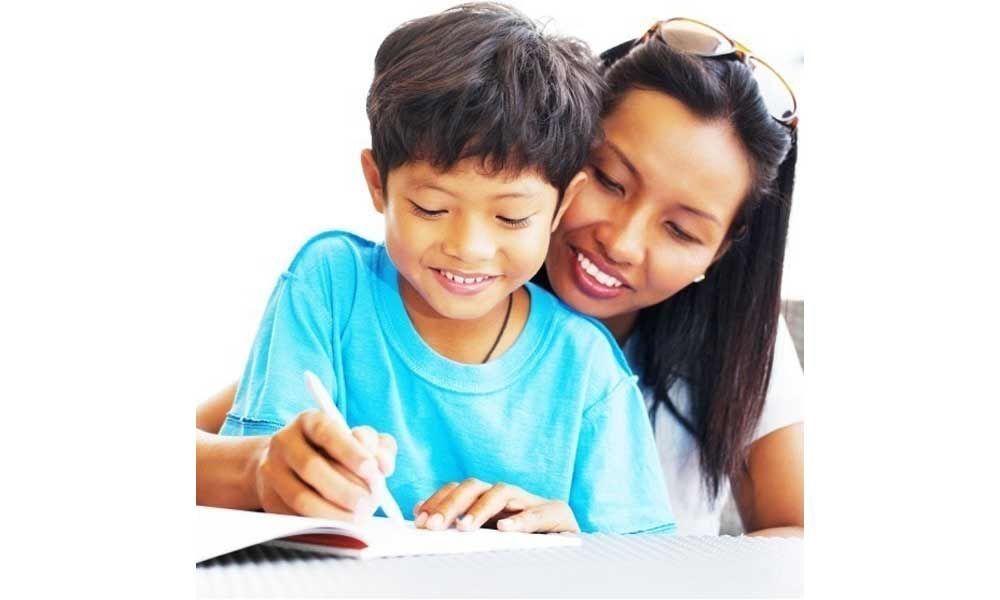Live
- Pakistan Protests: PTI Supporters March Towards Islamabad, Demanding Imran Khan's Release
- Additional Collector Conducts Surprise Visit to Boys' Hostel in Wanaparthy
- Punjab hikes maximum state-agreed price for sugarcane, highest in country
- Centre okays PAN 2.0 project worth Rs 1,435 crore to transform taxpayer registration
- Punjab minister opens development projects of Rs 120 crore in Ludhiana
- Cabinet approves Atal Innovation Mission 2.0 with Rs 2,750 crore outlay
- Centre okays Rs 3,689cr investment for 2 hydro electric projects in Arunachal
- IPL 2025 Auction: 13-year-old Vaibhav Suryavanshi becomes youngest player to be signed in tournament's history
- About 62 lakh foreign tourists arrived in India in 8 months this year: Govt
- IPL 2025 Auction: Gujarat bag Sherfane Rutherford for Rs 2.60 cr; Kolkata grab Manish Pandey for Rs 75 lakh
Just In
Parents and kids interact more when reading print books


Selecting what story to read is not the only decision parents make.
Selecting what story to read is not the only decision parents make.
They must also decide to choose between print and electronic version as well.
A new study has suggested that print books may have an edge over e-books when it comes to quality time shared between parents and their children.
The results of the research appeared in the Journal of Paediatrics, which is published by the American Academy of Paediatrics.
The study found out that parents and children verbalised and interacted less with e-books than with print books.
"Shared reading promotes children's language development, literacy and bonding with parents. We wanted to learn how electronics might change this experience," said lead author Tiffany Munzer, M.D a fellow in developmental behavioural paediatrics at Mott.
"We found that when parents and children read print books, they talked more frequently and the quality of their interactions was better," shared Munzer.
The parent-toddler pairs in the study used three book formats: print books, basic electronic books on a tablet and enhanced e-books featuring additions like sound effects and animation.
With e-books, not only did the pairs interact less but parents tended to talk less about the story and more about the technology itself.
Sometimes this included instructions about the device, such as telling children not to push buttons or change the volume.
Munzer noted that many of the interactions shared between parents and young children while reading may appear subtle but actually go a long way in promoting healthy child development.
For example, parents may point to a picture of an animal in the middle of a story and ask their child "what does a duck say?"
Also, parents may relate part of a story to something the child has experienced with comments like "Remember when we went to the beach?"
Reading time also lends itself to open-ended questions, such as asking children what they thought of the book or characters.
Munzer said, "These practices, involving comments and questions that go beyond content, are believed to promote child expressive language, engagement, and literacy." "Parents strengthen their children's ability to acquire knowledge by relating new content to their children's lived experiences," Munzer said.
"Research tells us that parent-led conversations are especially important for toddlers because they learn and retain new information better from in-person interactions than from digital media," Munzer added.
However, such practices occurred less frequently with electronic books, with parents asking fewer simple questions and commenting less about the storyline compared with print books.
The study suggested that the electronic book enhancements were likely interfering with parents' ability to engage in parent-guided conversation during reading.
Munzer added that nonverbal interactions, including warmth, closeness, and enthusiasm during reading time also create positive associations with reading that will likely stick with children as they get older.
Authors recommended that future studies examine specific aspects of tablet-book design that support parent-child interaction.
Parents who do choose to read electronic books with toddlers should also consider engaging as they would with the print version and minimise focus on elements of the technology itself.
"Reading together is not only a cherished family ritual in many homes but one of the most important developmental activities parents can engage in with their children," said senior author Jenny Radesky, M.D., a developmental behavioural paediatrician at Mott.
"Our findings suggest that print books elicit a higher quality parent-toddler reading experience compared with e-books.
Paediatricians may wish to continue encouraging parents to read print books with their kids, especially for toddlers and young children who still need support from their parents to learn from any form of media," added Radesky. (ANI)

© 2024 Hyderabad Media House Limited/The Hans India. All rights reserved. Powered by hocalwire.com






